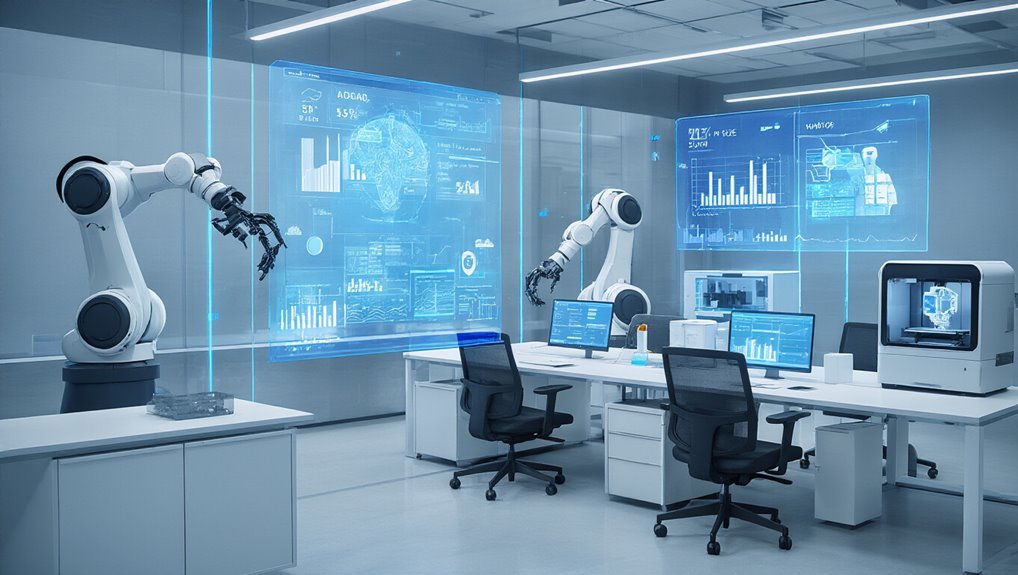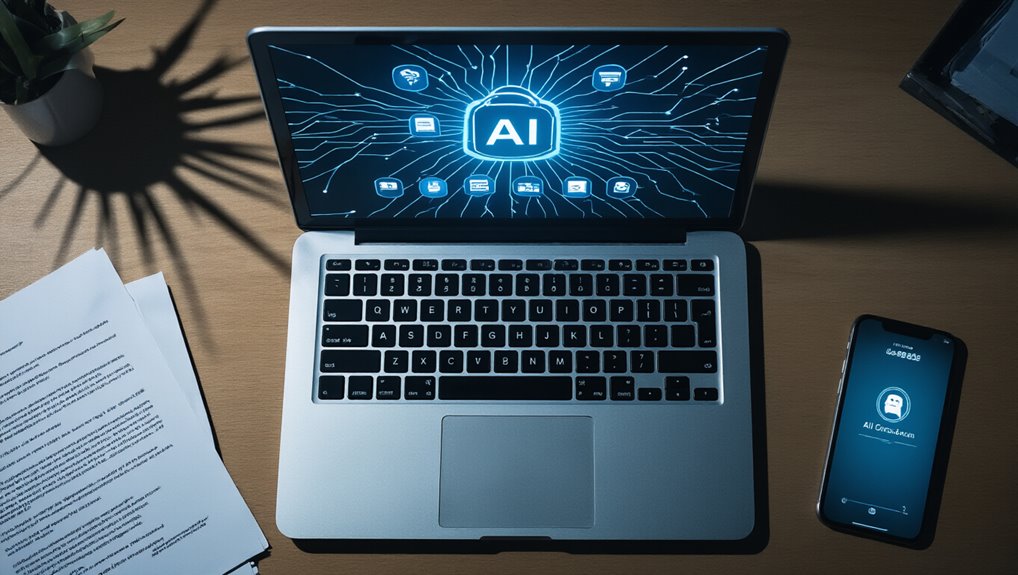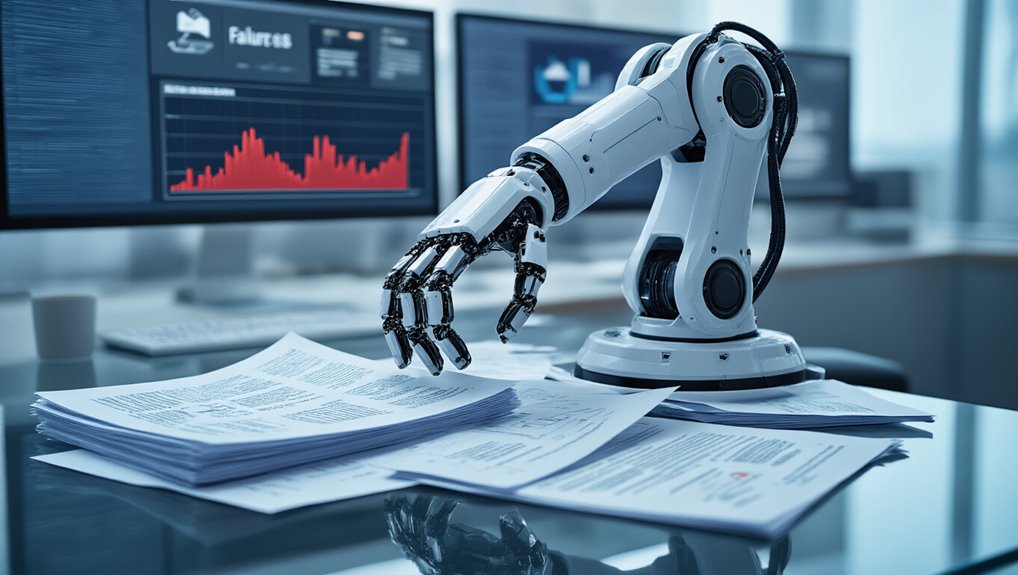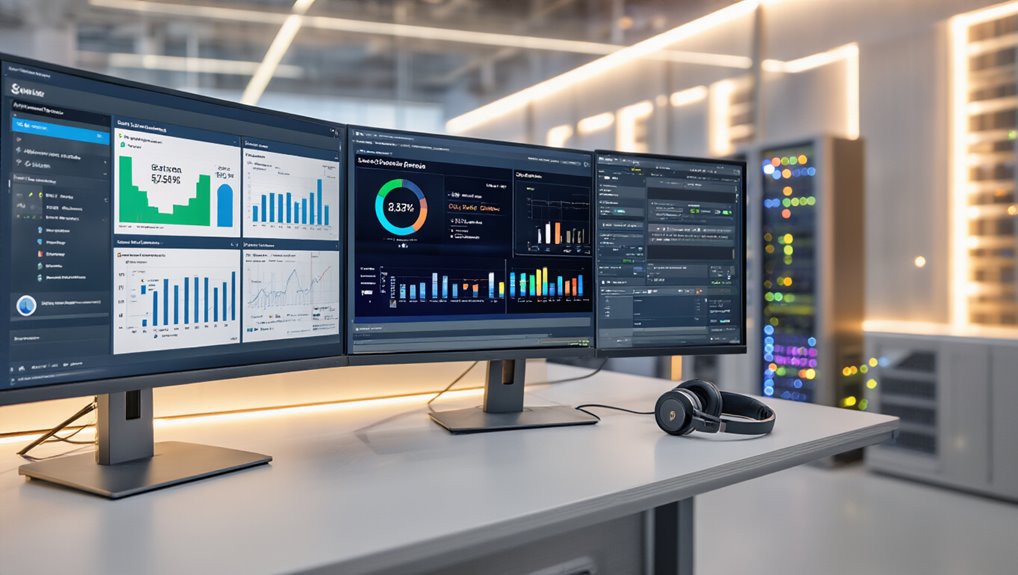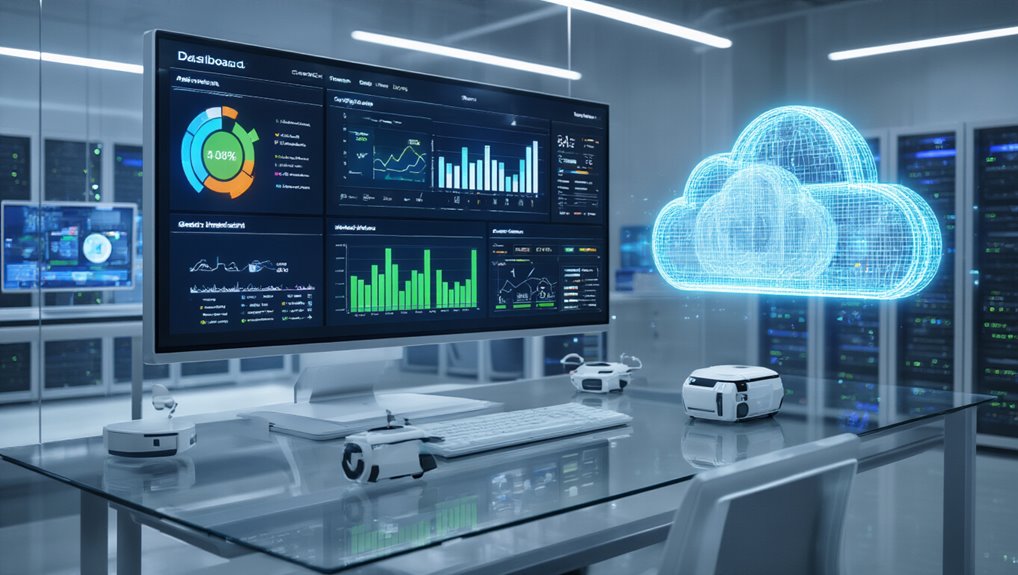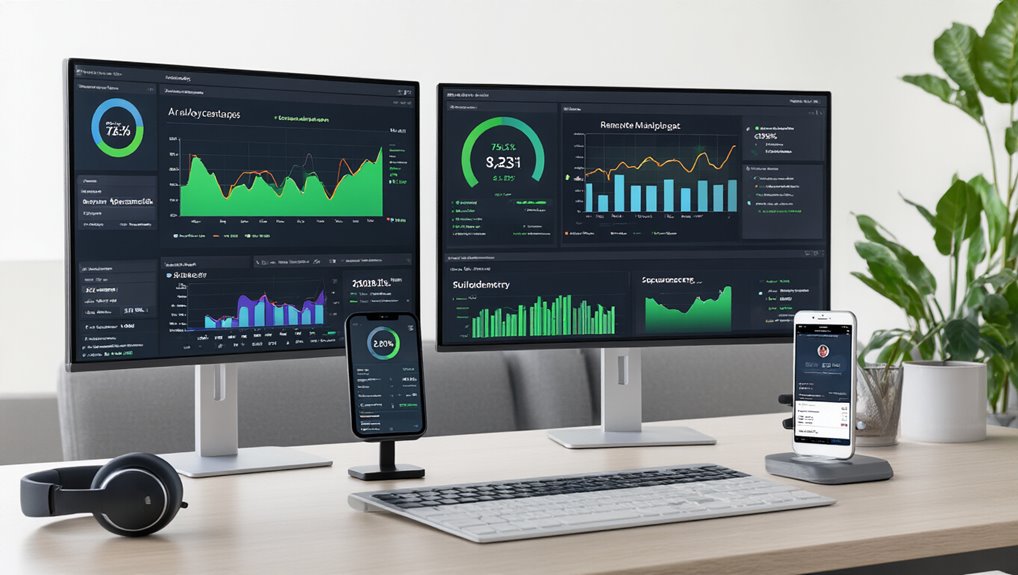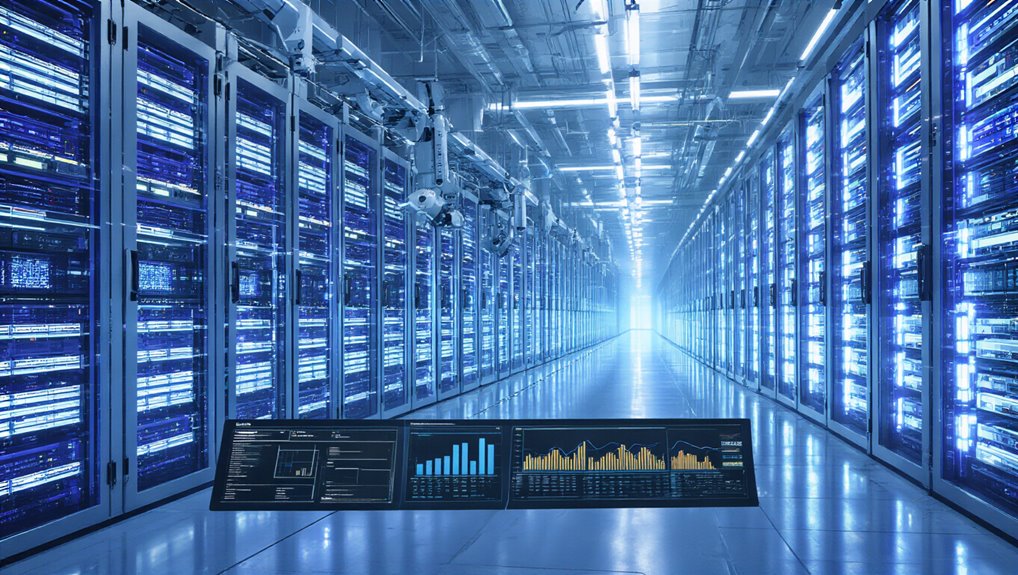As artificial intelligence continues to transform the global labor market, a complex picture of job creation and displacement is emerging. Projections indicate that by 2030, AI will help create 170 million new jobs worldwide while displacing 92 million, resulting in a net gain of 78 million positions. In the shorter term, we can expect 97 million new AI-related jobs by 2025, outpacing the 85 million jobs potentially lost to automation.
AI’s dual impact: creating 170 million jobs by 2030 while displacing 92 million—a net gain that reshapes our workforce.
The integration of AI in workplaces is accelerating rapidly, with adoption rates reaching 77% across businesses. You’ll find 54% of HR departments now using AI for talent acquisition, improving candidate quality by 64% and monitoring engagement in 62% of cases. This widespread implementation reflects growing recognition of AI’s potential to enhance productivity and innovation. A striking 90% of companies have already adopted AI technologies in some capacity.
New career paths are emerging as direct results of AI advancement. Jobs like Prompt Engineer, AI Ethics Officer, and Human-AI Collaboration Specialist simply didn’t exist a decade ago. Growth rates for these positions are staggering:
- AI Engineer positions increased by 143.2%
- Prompt Engineer roles grew by 135.8%
- AI Content Creator jobs expanded by 134.5%
The shifting landscape requires adaptation from workers. Approximately 14% of the global workforce will need to change careers by 2030 due to automation and task shifts.
Educational requirements are evolving too, with degree requirements for AI-augmented positions declining from 66% to 59%, creating more inclusive pathways to employment.
AI exposure varies greatly across demographics and regions. Women in the US occupy a higher proportion of AI-exposed roles (58.87 million women versus 48.62 million men), while advanced economies face greater immediate disruption (60% of jobs at risk) compared to low-income countries (26%). Asia is experiencing the most dramatic shift with a 94.2% increase in AI job listings year over year, outpacing other regions globally.
Despite challenges, 68% of employees support expanded AI use at work, citing improved productivity and work-life balance.
The future workforce will likely value uniquely human capabilities—judgment, empathy, creativity—alongside technical fluency, creating a complementary relationship between human intelligence and artificial systems that enhances our collective capabilities.
